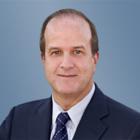The other week I had the chance to sit down with Ted Burke, outgoing chief executive and global managing partner of Freshfields. I’ve known Ted for years, consider him a friend, and with the announcement a month or so ago that he would be stepping down at Freshfields a year ahead of expiration of his term to join Boston-based Arclight Capital Partners as COO and General Counsel it was time to catch up.
[Because it will soon be relegated only to the “cached” version of Google, I decided to capture and reproduce here Ted’s extremely understated bio from the Freshfields site. Here it is, verbatim:]Ted is our chief executive and global managing partner based in London
Practice
Finance
About
Ted has been our chief executive and global managing partner since 2006.
He is a finance partner by trade, with wide experience in syndicated lending, leveraged finance and project finance. He has also represented private equity funds in acquisitions in the energy sector and in connection with fund formation.
These days Ted’s management role takes up most of his time, with particular emphasis on overseeing the firm’s strategy.
Ted joined us as a partner in our New York office in 1998, and became managing partner of our US offices in 2001. He continues to invest in growing our US business with a focus on client development and recruiting.
He is a member of the Board of Visitors for Georgetown University Law Centre.
Awards
• Paul Dean Alumni Award in September 2011, from Georgetown University.
Career to date
Ted was a lawyer with Milbank Tweed in New York
Qualifications and education
BA from the University of Vermont
JD from Georgetown University Law Center
Does the phrase “economy of expression” come to mind?
For the record, the Freshfields numbers are 2012-13 total revenues of £1.221 billion and average profit per equity partner (PEP) of £1.398 million, with 28 offices in Europe, Asia, the Mideast, and North America.
When we sat down, I asked Ted to reflect on his years at Freshfields (head of the firm since 2005). He opened, “It’s the oldest great firm in the world.” Founded in 1743 with the Bank of England as a client, which remains a client today. The firm has been successful over 270 years, Ted observed, but not at all times, and it has had to change, repeatedly. “No business can last more than a generation without changing.”
Yet there’s a core set of values that have existed across Freshfields for generations. Ted described them as:
- to be the best—this requires rigor and commitment
- to always behave decently and honorably—with everyone
- the ability to recognize when fundamental change is taking place in the market, to assess the firm with unblinking honesty, and to undertake change; and
- to know that as a partner you hold this firm in trust for future generations.
As an example of change, Ted went back to the firm’s origins in the 18th century. The prestige of its work for the Bank of England in1743 led it in turn to representing the aristocracy, who then held much of Britain’s wealth. (The East India and Hudson’s Bay companies were not centers of wealth and economic players in the way that GE or even the Fortune 1000th firm are today.) But the mid-18th century saw the rise of the modern corporation and the concentration of wealth and power in those entities. Freshfields had to adapt to maintain success and it did, albeit slowly.



